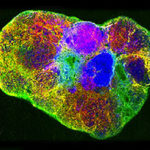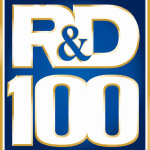Two years ago, Lawrence Berkeley National Laboratory (Berkeley Lab) researchers developed OpenMSI—the most advanced computational tool for analyzing and visualizing mass spectrometry imaging (MSI) data. Last year, this web-available tool was selected as one of the 100 most technologically significant new products of the year by R&D Magazine. Now, OpenMSI has been licensed to bolster ImaBiotech’s Multimaging™ technology in the field of pharmaceutical and cosmetic research and development. With support from the National Energy Research Scientific Computing Center (NERSC), Ben Bowen of the Environmental Genomics and Systems Biology Division and Oliver Rübel of the Computational Research Division conceptualized and developed OpenMSI.
Biosciences Area FY16 LDRD Projects
The projects of eleven Biosciences Area scientists and engineers received funding through the FY2016 Laboratory Directed Research and Development (LDRD) program. These projects cover a broad range of topics, including energy science technology applications, novel computing technologies, and mechanistic understanding of multi-scale interactions among molecules, microbes, plants, metazoans, the abiotic environment, and their feedbacks. Together, these efforts account for nearly 14% of the $25.3 million allocated. Lab-wide, 84 proposals were selected from a field of 179.
Bowen and Lee Recipients of 2015 R&D 100 Awards
The U.S. Department of Energy (DOE)’s Lawrence Berkeley National Laboratory (Berkeley Lab) has won seven 2015 R&D 100 awards. This year’s winners include two technologies developed by researchers in the Biosciences Area. Ben Bowen of the Environmental Genomics and Systems Biology Division and Oliver Rübel of the Computational Research Division led the development of OpenMSI, a new way to analyze and visualize mass spectrometry data. Seung-Wuk Lee of the Biological Systems and Engineering Division led the development of the Sensor Integrated with Recombinant and Engineered Nanophage (SIREN) platform. SIREN uses bio-nanofilms with tunable functionality to create portable devices for detecting small molecules of interest. Read more about these and the other five R&D 100 Awards won by Berkeley Lab at the News Center.
Was this page useful?






